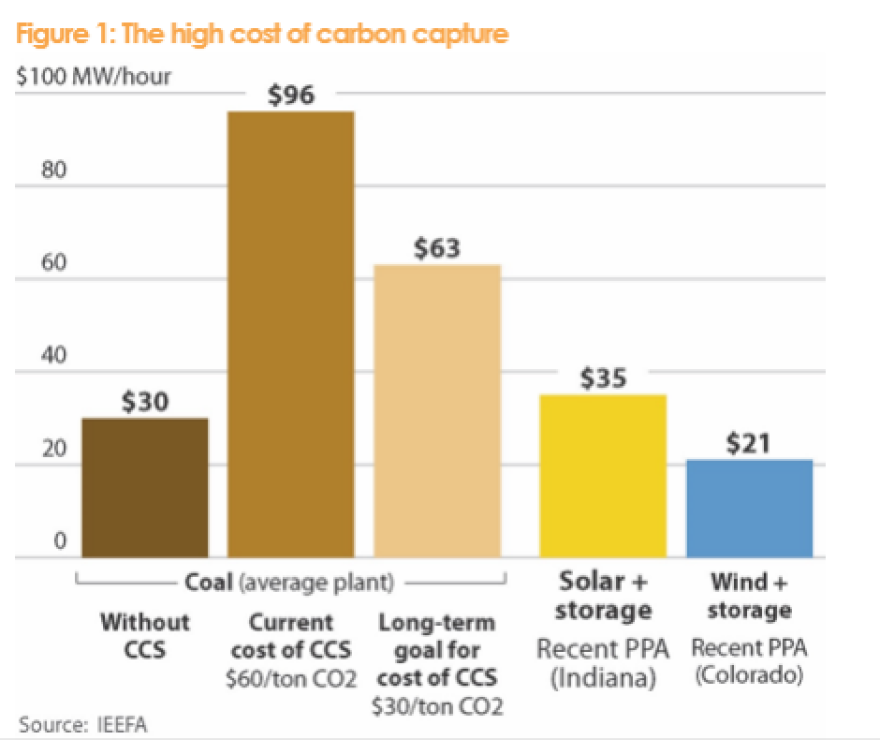Carbon capture and storage (CCS) technology has been a source of hope for coal country and touted by the Trump Administration as a way to keep the coal industry alive, while reducing its emissions. CCS aims to remove carbon dioxide from significant fossil-fuel emitting sites like power plants – it then either be stored or eventually used to develop products. But one report questions if its development is too slow to have a mainstream impact.
A report from the Institute of Energy Economics and Financial Analysis, a non-profit focused on renewable energy, argues that carbon capture technology is still too expensive. Dennis Wamsted, associate editor of the report, said that’s even after billions in investment along with support from the federal government — not to mention multiple test facilities around the country and Canada. One of those test facilities is The Department of Energy’s carbon capture program administered through the Office of Fossil Energy.

Wamsted said test facilities have been unable to bring down the cost; consequentially, resulting in a significantly higher price of energy produced per megawatt/hour. He said, with increasingly competitive natural gas and renewables, it wouldn’t make sense for power plants to afford retrofits resulting in higher production costs.
“If you add more costs to the coal industry it makes the economics almost impossible,” he said.
Wamsted said the equation just gets more difficult when you consider the average age of today’s coal fleet.
“The bulk of the coal plants in the U.S. are more than 40 years old. In five years, if somebody starts to consider putting a carbon capture technology on a coal plant, you’ve just gone five years further down the road,” Wamsted said.
Brad Crabtree, Vice President of fossil energy at the Great Plain’s Institute and co-director of the Carbon Capture Coalition, disagreed. He said coal plants will be around for a long time even if an older generation retires and carbon capture is necessary to keep emissions down.
"It certainly makes sense to invest in carbon capture that will be around for years to come. If you’re looking at it from a climate standpoint, you can’t afford to have power plants for the next 50 years without carbon capture,” Crabtree said.

He added it’s just too early to say the technology is too expensive to work… it hasn’t enjoyed the same tax incentives as renewables until recently with 45Q. That provides $35 - $50 per ton of carbon dioxide captured and either stored or used. It’s authorized until the end of 2023.
“Just think about how many years it took for wind and solar from when the first projects were developed to when the industry now is scaling up. It didn’t happen overnight,” he said. "Over $2 trillion that’s been invested in clean energy globally, less than 2/10 of 1% of that total investment has gone into carbon capture. In terms of reducing costs, we’re just at the beginning of that process.”
Wyoming has invested privately and publicly in carbon capture utilization and storage through the Integrated Test Center. U.S. Senator John Barrasso is also moving forward with the USE IT act which would support the technology. This week, the Governors' Partnership on Carbon Capture, which includes Governor Matt Mead, issued support of the legislation.
The Intergovernmental Panel on Climate Change also found carbon capture a necessary step towards reducing global emissions.







